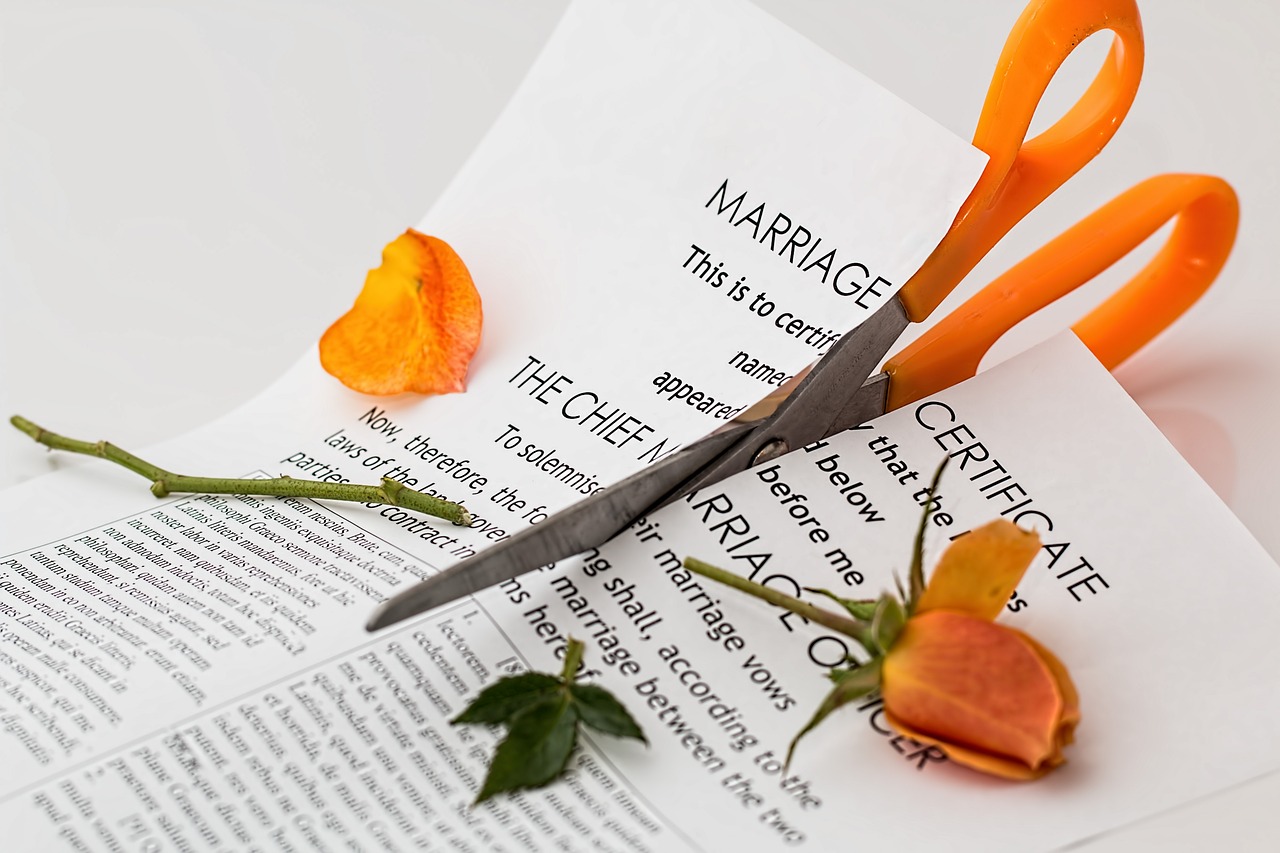If you’ve recently been involved in a car accident that wasn’t your fault, you may be wondering if hiring a lawyer is necessary. While it’s always a good idea to understand your legal rights and options, especially in complex situations like car accidents, the decision to hire a lawyer ultimately depends on various factors. In this article, we’ll explore the reasons why you might consider seeking legal representation, clarify the benefits of having a lawyer by your side, and provide key insights to help you make an informed decision. So, whether you’re unsure about navigating the legal process or simply want to ensure you receive fair compensation, keep on reading to learn more about whether or not you need a lawyer for a car accident that wasn’t your fault.

Understanding Liability in Car Accidents
Car accidents can be a stressful and overwhelming experience, especially if you were not at fault for the collision. Determining fault in a car accident is a crucial step in seeking compensation for damages.
Determining Fault in a Car Accident
When it comes to determining fault, it is important to gather as much evidence as possible. This includes documentation of the accident scene, witness statements, and any available surveillance footage. The police report filed at the scene will also play a significant role in establishing fault.
Insurance companies will often conduct their own investigations to determine who is at fault. However, their findings may not always align with the true circumstances of the accident. That’s where seeking legal representation can make a difference.
What to Do If You Are Not at Fault
If you find yourself in a car accident that was not your fault, there are a few steps you should take to protect your rights and ensure fair compensation:
- Document the accident: Take photos of the accident scene, including any damages to your vehicle and any visible injuries.
- Gather information: Exchange contact and insurance details with the other driver involved. Also, collect information from any witnesses present at the scene.
- Seek medical attention: Even if you feel fine immediately after the accident, some injuries may manifest later. It’s important to get a medical evaluation to ensure your well-being.
- Notify your insurance company: Inform your insurance provider about the accident, but be cautious when discussing the details. It is advisable to consult with a lawyer before making any statements.
- Consult with a lawyer: Contacting a lawyer specialized in car accident cases can help protect your rights and guide you through the legal process.
Importance of Seeking Legal Representation
When you’re not at fault in a car accident, you may assume that proving your innocence and receiving fair compensation will be straightforward. However, insurance companies can employ tactics that may jeopardize your claim.
Understanding Insurance Companies’ Tactics
Insurance companies are businesses that aim to minimize their financial liabilities. They may employ several tactics to achieve this, including:
- Quick settlement offers: Insurance companies may offer a quick settlement to minimize their payouts. These offers are often lower than what you may be entitled to, and accepting them can result in settling for less than you deserve.
- Delaying tactics: Insurance companies may intentionally delay the claims process, hoping that you’ll become frustrated and settle for a lower amount.
- Denying liability: Even when fault is clear, insurance companies may deny their policyholder’s responsibility. They may try to shift blame onto you or argue that their policy does not cover the specific circumstances of the accident.
The Complexity of Legal Procedures
Navigating the legal process can be complex, especially if you have no experience dealing with personal injury law. From filing paperwork to negotiating with insurance companies, handling a car accident claim requires knowledge and expertise in the legal field. Seeking legal representation ensures that you have someone with the necessary skills and experience advocating for your rights.
Compensation for Damages
When you’re not at fault in a car accident, you may be eligible for different types of damages. These damages can help cover medical expenses, property damage, lost wages, and pain and suffering.
Types of Damages You May Be Eligible For
- Economic damages: These damages are quantifiable and include medical bills, property damage, lost wages, and any other financial losses resulting from the accident.
- Non-economic damages: These damages are subjective and aim to compensate for the emotional and physical pain, suffering, and reduced quality of life caused by the accident.
- Punitive damages: In extreme cases where the defendant’s actions were grossly negligent or intentional, punitive damages may be awarded as a form of punishment and to deter similar behavior in the future.
Calculating Your Claim
Calculating the value of your claim can be a complex process that requires a thorough examination of the circumstances surrounding the accident, the extent of your injuries, and the impact on your life. A skilled personal injury lawyer can help assess the value of your claim and fight for the maximum compensation you deserve.
Navigating the Legal Process
Seeking compensation for a car accident involves navigating various legal procedures. Understanding the timeline and requirements of the legal process is crucial to ensure your claim is filed in a timely manner.
Statute of Limitations for Filing a Lawsuit
Each state has a statute of limitations, which is a legal deadline for filing a lawsuit. In car accident cases, the time limit for filing a lawsuit can vary. It is essential to consult with a lawyer as soon as possible to ensure you do not miss this deadline and lose your right to seek compensation.
Gathering Evidence to Support Your Claim
To build a strong case, gathering evidence is crucial. This includes:
- Crash scene evidence: Collecting photographs, videos, and witness statements from the accident scene can provide valuable evidence to establish fault.
- Medical records: Medical records documenting your injuries, treatments, and prognosis can help support your claim for damages.
- Police reports: The police report filed at the scene of the accident can provide an official record of what happened and serve as evidence of fault.
- Expert opinions: In some cases, expert opinions may be necessary to establish fault or determine the extent of your injuries and their impact on your life.
Negotiating with Insurance Companies
Negotiating with insurance companies can be challenging, especially when you’re dealing with your own insurance company or the at-fault party’s insurer. Insurance adjusters are trained to minimize claim payouts, and without proper legal representation, you may not receive a fair settlement offer. A skilled personal injury lawyer can handle negotiations on your behalf, ensuring you receive the compensation you deserve.
When Should You Hire a Lawyer?
While not all car accident cases require legal representation, there are certain situations where hiring a lawyer is strongly recommended.
Severity of Injuries
If you have suffered severe injuries in a car accident, it is crucial to seek legal representation. Severe injuries often result in high medical expenses, long-term treatment, and significant pain and suffering. A lawyer can help ensure you receive the compensation necessary to cover these damages adequately.
Disputes Over Fault
If there is a dispute over fault in your car accident, it is essential to have a lawyer on your side. They can gather evidence, analyze the circumstances, and build a strong case to establish the other party’s liability.
Dealing with Insurance Companies
Insurance companies can be challenging to deal with, especially when trying to negotiate a fair settlement. Having a lawyer represent you can level the playing field, as they understand the tactics used by insurance companies and know how to protect your rights.
Benefits of Hiring a Lawyer
Hiring a lawyer specialized in car accident cases can provide several benefits throughout the legal process.
Expertise in Personal Injury Law
Car accident lawyers have extensive knowledge and experience in personal injury law. They are familiar with the legal procedures, understand the complexities of the system, and can guide you through every step of your case.
Maximizing Your Compensation
A skilled lawyer knows how to assess the true value of your claim. They can calculate the damages accurately, negotiate with insurance companies, and fight for the maximum compensation you deserve.
Handling Communication and Documentation
Dealing with paperwork, legal documents, and communication with insurance companies can be overwhelming. A lawyer can handle all aspects of your case, ensuring proper documentation, effectively communicating with insurance adjusters, and safeguarding your rights.

Finding the Right Lawyer for Your Case
Finding the right lawyer to represent your car accident case is crucial for achieving a successful outcome. When searching for legal representation, consider the following factors:
Experience in Car Accident Cases
Choose a lawyer with extensive experience specifically in car accident cases. They will have the necessary skills and knowledge to navigate the complexities of these types of claims successfully.
Reputation and Track Record
Look for a lawyer with a strong reputation and a track record of successful settlements or verdicts. Reading client reviews, testimonials, and checking online ratings can provide valuable insights into their professionalism and competence.
Fees and Payment Structure
Discuss the lawyer’s fees and payment structure during the initial consultation to ensure it aligns with your financial capacity. Many car accident lawyers work on a contingency fee basis, meaning they only get paid if they win your case. This can alleviate financial burdens while pursuing your claim.
FAQs
1. Can I handle my car accident claim on my own?
While it is possible to handle a car accident claim on your own, seeking legal representation can significantly increase your chances of receiving fair compensation. A lawyer can navigate the legal process, handle negotiations with insurance companies, and protect your rights throughout the case.
2. How much does it cost to hire a lawyer for a car accident case?
Many car accident lawyers work on a contingency fee basis, meaning they only get paid if they win your case. The exact fees can vary, but typically range from 33% to 40% of the final settlement amount. During the initial consultation, it is crucial to discuss the lawyer’s fees and payment structure to ensure you have a clear understanding.
3. What if the insurance company denies my claim?
If the insurance company denies your claim or offers an inadequate settlement, it is essential to consult with a lawyer. They can review your case, analyze the circumstances, and advocate for your rights. With legal representation, you can pursue other legal options such as filing a lawsuit to seek the compensation you deserve.
4. How long will it take to resolve my car accident case?
The timeframe for resolving a car accident case varies depending on various factors, including the complexity of the case, the severity of the injuries, and the willingness of the insurance company to negotiate. While some cases can be resolved in a matter of months, others may take significantly longer. Consulting with a lawyer can give you a better understanding of the timeline based on the specific circumstances of your case.
5. What steps should I take immediately after a car accident?
After a car accident, it’s important to take several immediate steps:
- Ensure your safety and the safety of others involved in the accident.
- Call emergency services and report the accident to the police.
- Gather information from the other driver(s) involved, including their contact and insurance details.
- Take photos of the accident scene, including any damages and injuries.
- Seek medical attention, even if you feel fine, to ensure there are no hidden injuries.
- Notify your insurance company about the accident, but be cautious when discussing the details.
- Consult with a lawyer specialized in car accident cases to protect your rights and ensure fair compensation.